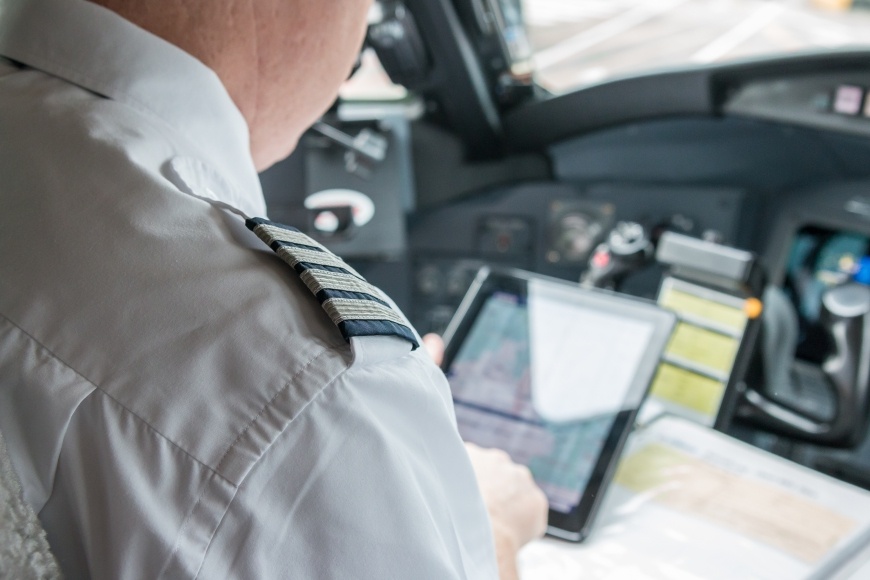2017 has been a difficult year for many airlines. Even as the industry as a whole posts an uplift in passenger numbers and continued profitability, a combination of intense competition for short-haul routes in Europe and political instability in North Africa has led to a gloomy outlook - and some financial shocks - for more than a few carriers.
Image by permission of Matus Duda
But is the industry really "a death trap for investors", as Warren Buffet warned in 2013, or should this be taken as a sign that airlines need to do more to innovate and disrupt the status quo?
Across the globe, many carriers are already investing in new technologies to drive greater efficiency and cut down on their overheads to increase their competitive advantage. Here's a look at four of the trends we've witnessed through 2017, and how forward-thinking airlines are using them to get ahead in a challenging market.
AI, Machine Learning and Automation
Artificial Intelligence (AI) has made its presence felt in a number of industries in recent years, and within the next few years we’re likely to see it revolutionising even more areas of our professional and personal lives. Aviation is no exception. In fact, many progressive airlines are already incorporating AI technology into their processes. In the near future, airlines will increasingly use chatbot technology to handle everything from customer bookings to complaints and enquiries.
Predictive analytics will also give airlines deeper insights into their operations, and smart algorithms will make it easier for companies to streamline processes and ensure optimal levels of service at all times. Coupled with predictive analytics, AI can be used for personalised online experiences and marketing messaging, as well as smart revenue management and ticket pricing. Automation also ties the customer’s offline and online experiences together, which gives progressive airlines a significant opportunity to innovate and differentiate themselves through superior customer service.
Cloud Technology and Electronic Flight Bags (EFBs)
The cloud is another technology that has seen significant uptake in virtually every industry in the past few years. As the technology has matured, it’s become possible to shift an increasing number of business operations into the cloud, which has opened doors for many businesses in terms of increased efficiency, reduced IT overheads and lowered risk.

Today, there are a number of specialised cloud platforms tailored for the unique needs of the airline industry and its specific infrastructural requirements. Electronic Flight Bags (EFBs) are becoming increasingly common among forward-thinking airlines, due to the benefits they bring to flight task management. Using an EFB puts all the information your crew needs in one place that is accessible by your entire team regardless of location.
Big Data & Analytics
With the breadth of digital channels used by both consumers and businesses today, an ever-increasing amount of data is being generated through a growing number of channels. This presents DFOs with the opportunity to gain deeper insight into their operational information than ever before, which in turn makes it easy to identify areas of poor performance and how to improve upon them.
Big Data and Analytics also give airlines ample opportunity for innovation through improved service offerings and the ability to enter into new markets or segments with sufficient data to know they’re making a sound decision. However, it’s important to bear in mind that with more data comes more regulation and compliance. Make sure you’re informed about the latest data standards and regulations, and how they could affect your airline.
Security, Compliance and Reliability
Amid growing pressure on airlines to reduce operational expenses and improve profit margins, security and compliance will undoubtedly become more of a priority in the aviation industry. To this end, it’s critical that DFOs start considering compliance programs that could help optimise business processes and streamline operations. Security is of even more significance for the airline industry, as both the physical and virtual safety of passengers falls under our remit. In light of the Internet of Things, the barrier between physical and digital security is also shrinking - compromised digital security has an increasingly significant impact on our wellbeing in the physical world. Airlines will have to remain vigilant in ensuring that both their physical and digital security efforts leave nothing to chance.
With so much change and disruption happening in the aviation sector, it can be difficult to keep up with the latest advances and be aware of the most significant opportunities and threats at play. To stay on the cutting-edge of airline trends, it’s essential to ensure your airline operations are as efficient as possible. Why not download our free insight to learn three great ways to airline efficiency:

